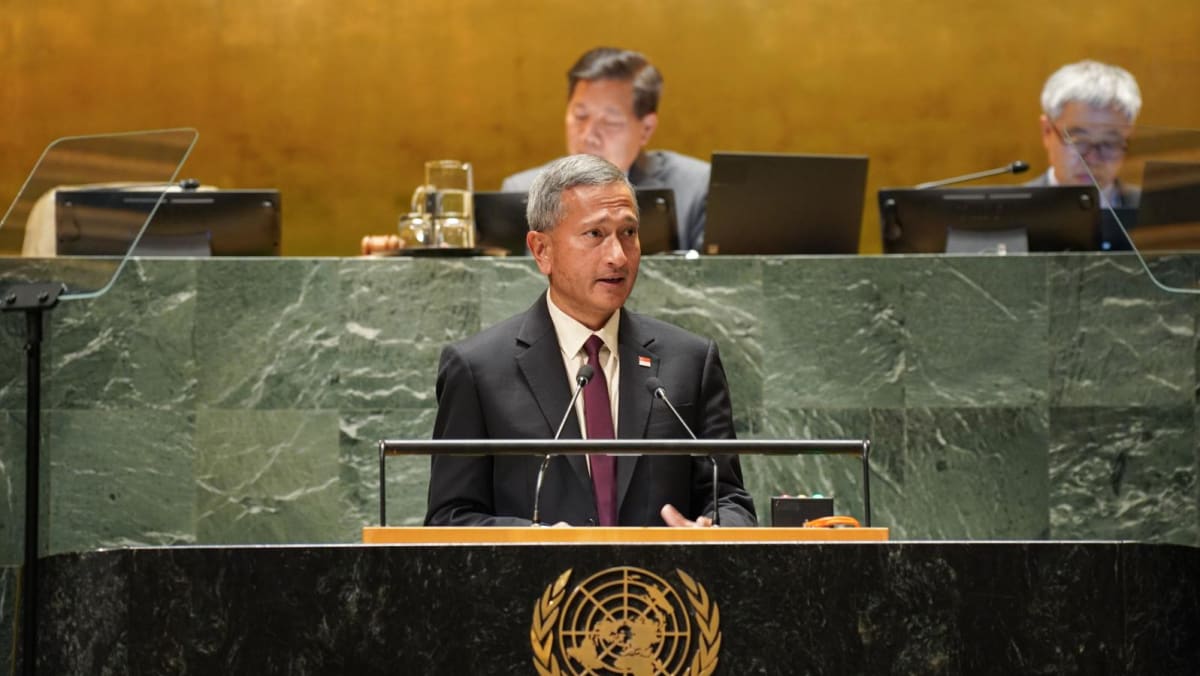
SINGAPORE: In the midst of the digital revolution and the advent of artificial intelligence (AI), the world must prepare for the associated risks and distribute the benefits fairly, said Minister for Foreign Affairs Vivian Balakrishnan at the United Nations General Assembly (UNGA) on Friday (Sep 22).
Generative AI like ChatGPT has captured the popular imagination in the past year, but the world is “already on the verge” of the next stage of the technology – AI agents that can negotiate and transact with each other and humans, he added.
“This has profound implications on all our societies, on our politics and our economies everywhere. And autonomous weapon systems without human fingers on the triggers are already with us,” he said, delivering Singapore’s statement to the UNGA in New York.
Quoting UN Secretary-General Antonio Guterres’ words at the opening of the UNGA this week, Dr Balakrishnan stressed that while generative AI “holds much promise”, it may also lead the world “into more danger than we can control”.
“This is especially so in the theatre of war and peace,” he continued, adding that AI will disrupt assumptions on military doctrines and strategic deterrence.
For example, since AI-enabled weapons systems can be deployed and triggered almost instantly, decision times for leaders would be dramatically reduced, said Singapore’s Foreign Affairs Minister.
“There will be many occasions when humans may not even be in the firing loop, but we will be on the firing line. This would inevitably heighten the risks of unintended conflicts or the escalation of conflicts,” he added.
During the Cold War, the sense of mutually assured destruction imposed mutual restraint, although there were several close shaves, said Dr Balakrishnan.
“This spectre of nuclear escalation has not disappeared. And yet the advent of artificial intelligence in conflict situations has actually increased the risks exponentially,” he added.
“We must start an inclusive global dialogue, and we must start it at the United Nations. We need to urgently consider the oversight of such systems and the necessary precautions to avoid miscalculations.”
Singapore welcomes the decision to convene the High-Level Advisory Body on AI to explore these issues and is optimistic that the UN and the multilateral system will be “up to the task” of establishing norms on these fast-emerging technologies, said the Foreign Affairs Minister.
“The reality is that many nations are not ready for the wave of digital transformation sweeping our world. We should not forget that, even today, more than 2 billion people still have no internet access. And we need to work far harder to bridge that digital divide,” he continued.

